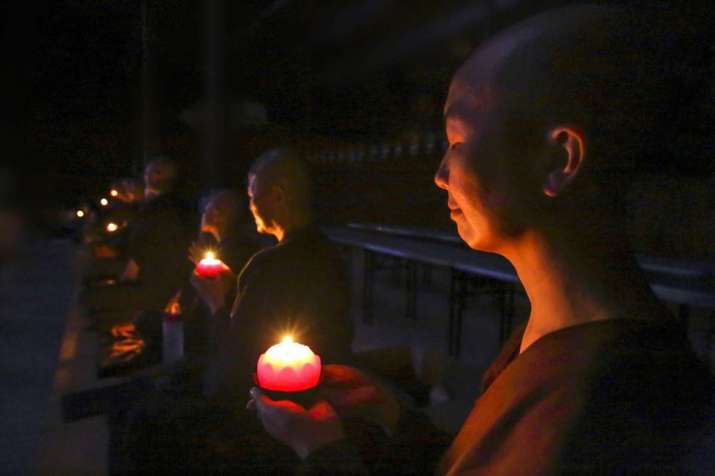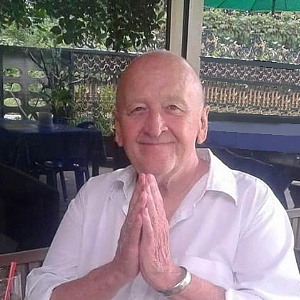
Ledi Sayadaw (1846–1923) was a brilliant Pali scholar and progenitor of the Burmese Vipassana meditation method as it was practiced by Webu Sayadaw, U Ba Khin, Mahasi Sayadaw, and S. N. Goenke.
He knew the Tipitaka inside-out and shared some explicit observations about abstaining from intoxicants, which may surprise some modern-day readers. (Ledi 1–5)
Referring to The Book of the Eights of the Gradual Sayings, Ledi Sayadaw states that “drinking intoxicants, if done frequently or habitually,” leads to being reborn as a mad person, or inhell, or as an animal, or as a hungry ghost.*
The minimum effect of habitual drinking is to become confused or deluded. What is more serious, besides a confused mind, is that taking alcohol prevents good rebirths in human and divine worlds.
This evil is an unwholesome kamma that causes rebirth in the wombs of savages.
One has to dwell in uncivilized places due to one’s indulgence.
Even if, due to some good kamma, habitual drinkers reach the realm of deities, they are reborn as mad gods, cruel gods, devilish gods, or inferior gods.
Taking intoxicants constitutes unwholesome kamma and has two evil consequences: bad consequences in the present life, and unfortunate future rebirth. Indulging in intoxicants should be taken seriously, because it also leads to one of the four states of misery: hell, animals, ghosts, and demons,
Among the consequences of being mentally imbalanced are neurosis, paranoia, schizophrenia, psychosis, etc.
Drinking alcohol . . . in the present life promotes fresh evil kammas thereby leading to hell.
Past evil kammas open doors of opportunity for past evil kammas to ripen and play out their appropriate effects so that one suffers in hell.
Taking intoxicants . . . in this life means creating fresh evil kamma, promoting greed, hatred, and delusion.
Such newly created kamma will support wrong views and motivate new evil kammas.
The five hindrances—lust, anger, dullness, restlessness, and doubt are also sustained and developed.
Unwholesome needs and deeds burn the mind and consciousness, resulting in suffering. Intoxicants even damage our genes and chromosomes. So we need to understand how craving intoxicants affects the mind and body:
As a result of drunkenness . . . one performs bodily, vocal, and mental misdeeds, increasing harmful kammas.
Killing, lying, and abuse are common consequences of drinking alcohol.
Indulgence in alcohol sows seeds of evil kamma which ripen as future suffering. A drunkard who continues accumulating evil kamma will be reborn in one of the lower realms after death.
Having committed evil actions in past lives, while wandering endlessly in the rounds of saṃsāra, one should perform wholesome deeds in order to correct the imbalance of unwholesome kamma
In coarser realms, the Buddhadhamma is seldom if ever heard due to the prevalence of unwholesome kammas in thought, word and deed.
Meeting Noble Ones is exceedingly rare, possible only once in a thousand or ten thousand existences.
Past evil deeds resemble robbers and murderers who stay near a village to commit crimes.
Transgression of the precept of abstaining from intoxication gives impetus to evil deeds: past, present and future.
The bad kamma of taking alcohol resembles receivers of stolen goods who live in the village. Robbers get their chance due to the receivers of stolen goods. Villages are destroyed by them.
As long as taking intoxicants continues, one’s evil kamma will keep ripening, resulting in rebirth in various hells as past misdeeds mature. Although beings may have performed good deeds in the past, such good deeds will not ripen to fruition due to the preponderance of present bad kamma.
If one dies without abandoning evil, one will have failed to create the conditions necessary for escape from the effects of evil kamma.
When past evil kammas reap results, one reaches Roruva hell. In Roruva, there are two hells: Jālaroruva and Dhūmaroruva. So those who abuse alcohol must know about this danger and heed the Buddha’s warning.
Jālaroruva is the fourth of eight great hells for serious crimes. It is beneath this Earth and is just like a deep, wide cave of molten iron. Gamblers and drunkards suffer in this hell after their death. Their bodies resemble mountains. Their sense-doors look like streams. Streams of hot iron enter their mouths, noses, and ears. Their bodies are scorched by burning hot liquids without let-up. For one hundred thousand years or more they have to endure intense suffering, and absolutely no chance of happiness exists.
Dhūmaroruva exists beneath Jālaroruva. It looks like a great cave with a molten iron base. Those who indulge in drugs, heroin, marijuana, hashish, cocaine, etc., after their death, reach this hell.
Their bodies look like mountains. Their eyes, ears, and nose resemble running streams. Hot and acrid smoke enters through the nine orifices to the interior of the body.
They suffer this torture for at least one hundred thousand years. Bodily and mental pain are so intense that they defy description. So addicts should fear this danger and reform their behavior.
Intoxicants may provide false peace, but their side-effects harm the mind and body.
Mentally, intoxicants make the mind vulnerable to evil forces.
Addicts’ bodies will be full of toxins and deteriorate physically.
The mind becomes clouded by intoxicants, so it inclines more easily toward sensual pleasures and wrong views.
Addicts become dependent on alcohol and drugs for mental peace, and cannot bear to be without them. Their befuddled minds long for these poisons, and when they fail to get them, their minds yearn for more.
Although meritorious deeds should produce good results a thousandfold, those who are addicted to alcohol cannot fulfill their potential due to mental impurities because of weakened mind states.
When drinking intoxicants, one’s mind is clouded by bad thoughts.
The madness of intoxication corrupts the heart. Even a good person’s mind changes. A civilized state of mind becomes impossible as drunkenness wreaks havoc.
The effects of past good deeds become weaker and weaker as their force diminishes.
As only one thought can exist in the mind at any one time, memories of previously performed meritorious deeds cannot enter the mental process. Every time alcohol is taken, positive thoughts are lost.
The mind is permeated with confusion, negligence, heedlessness, and coarseness, leading to various evil deeds. This state of mind overwhelms and inhibits the power of past good deeds, so they cannot produce positive results.
Bad behavior weakens good character. Alcohol drives away pure thoughts and disrupts rational thinking.
In this world are demons, hungry ghosts, and inferior Earth-bound deities. Spirits and demons live on islands, in wildernesses, and other remote places.
Since drunkards and habitual drinkers are reborn in such existences, they undergo rebirth in states of loss, dependent on further bad kamma.
Those who do not abstain from alcohol, even though they may call themselves Buddhists, will wander on in a series of low existences following the inexorable Law of Kamma.
* A.iv.247, Duccaritavipāka Sutta. “Surāmerayapānaṃ, bhikkhave, āsevitaṃ bhāvitaṃ bahulīkataṃ nirayasaṃvattanikaṃ tiracchānayonisaṃvattanikaṃ pettivisayasaṃ vattanikaṃ. Yosabbalahusurāmerayapānassa vipāko, manussabhūtassa ummattakasaṃvattaniko hotī”ti.”
References
A Talk on Intoxicants and Gambling from the Goṇasūra Dīpanī, Venerable Ledi Sayādaw (Buddhism for Beginners Group)















… [Trackback]
[…] Read More Infos here: buddhistdoor.net/features/concerning-intoxicants/ […]